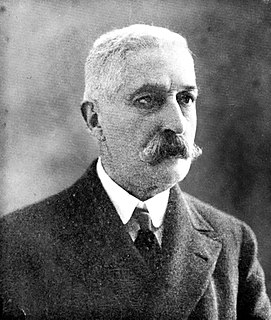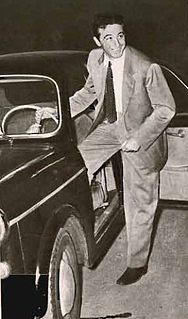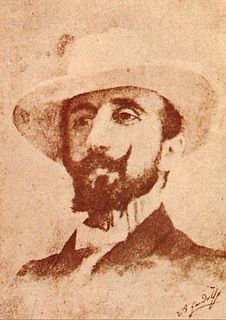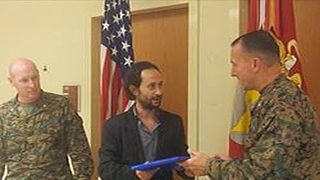Related Research Articles

Catania is the second largest city in Sicily, after Palermo, and among the ten largest cities in Italy. Located on Sicily's east coast, it faces the Ionian Sea. It is the capital of the 58-municipality region known as the Metropolitan City of Catania, which is the seventh-largest metropolitan city in Italy. The population of the city proper is 311,584, while the population of the Metropolitan City of Catania is 1,107,702.

Giovanni Carmelo Verga was an Italian realist (verista) writer, best known for his depictions of life in his native Sicily, especially the short story Cavalleria rusticana and the novel I Malavoglia.
The Music of Sicily refers to music created by peoples from the isle of Sicily. It was shaped by the island's history, from the island's great presence as part of Magna Grecia 2,500 years ago, through various historical incarnations as a part of the Roman Empire, then as an independent state as the Emirate of Sicily then as an integral part of the Kingdom of Sicily and later the Kingdom of the Two Sicilies, and, finally, as an autonomous region of the modern nation state of Italy.

Luigi Capuana was an Italian author and journalist and one of the most important members of the verist movement. He was a contemporary of Giovanni Verga, both having been born in the province of Catania within a year of each other. He was also one of the first Italian authors influenced by the works of Émile Zola, French author and creator of naturalism. Capuana also wrote poetry in Sicilian, of which an example appears below.

Luca Ronconi was an Italian actor, theater director, and opera director.
Antonino Russo Giusti was an Italian dramatist.

Angelo Musco was an Italian actor in theater and film. He was known for his comic abilities as well as for his carefully drawn psychological portraits.

Nino Martoglio was an Italian writer, publisher, journalist and producer of theatrical works. He wrote mostly in Sicilian and likewise, his theatrical works were mostly in Sicilian. He founded a theatre company in Catania in the early part of the 20th century. In the latter stages of his life he had some success as a film director.

Arnoldo Foà was an Italian actor, voice actor, theatre director, singer and writer. He appeared in more than 130 films between 1938 and 2014.

Turi Pandolfini was an Italian stage and film character actor. He appeared in 46 films between 1917 and 1961.

Salvatore "Turi" Ferro was an Italian film, television and stage actor. He is considered the most important actor in the Sicilian theatre post-World War II era.
Teatro Verga is a theatre located in Via Giuseppe Fava in Catania, Sicily, Italy. It is the headquarters of the Teatro Stabile di Catania.
Marco Betta is an Italian composer.

The Ferocious Saladin is a 1937 Italian comedy film directed by Mario Bonnard and starring Angelo Musco, Alida Valli and Lino Carenzio. The film was made at Cinecittà in Rome. On 28 April 1937, Benito Mussolini visited the newly completed studio. Along with the historical epic Scipio Africanus, this was one of the films he saw being made. The film, a vehicle for the Sicilian comedian Angelo Musco, is about a man attempting to complete a collection of playing cards. The only outstanding card is that of The Ferocious Saladin.

Rosina Anselmi was an Italian stage, television and film actress. She was a prominent actress in the Sicilian language theater, especially in the province of Catania.

Guido Leontini was an Italian stage, film and television actor.

Lorenzo Muscoso is an Italian director, author and journalist.
The following is a timeline of the history of the city of Catania in the Sicily region of Italy.

Antonio Canepa was a Sicilian politician, revolutionary, professor and writer, known as one of the most important advocates of the Sicilian nationalism. He was the leader of the socialist faction of the Movement for the Independence of Sicily and the founder of the Volunteer Army for the Independence of Sicily.

Asmundo is an old Sicilian noble family that has played a notable role in the island's political, cultural, and economic history.
References
- ↑ Chiara Merli. Il CRT, Centro di ricerca per il teatro: Settimana del teatro. May 2005. p.21.
- 1 2 Caterina Napoleone. Enciclopedia della Sicilia. Ricci, 2007. ISBN 8897154018.
- 1 2 Chiara Merli. Il teatro ad iniziativa pubblica in Italia. LED Edizioni Universitarie, 2007. ISBN 8879163507.